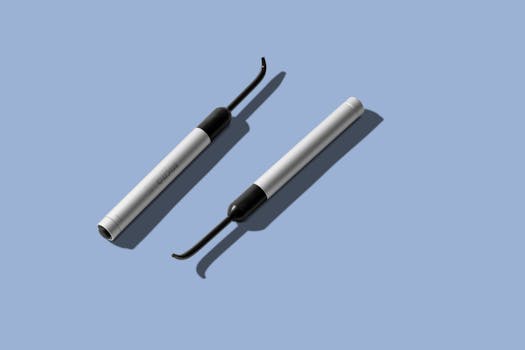What Should You Avoid After Professional Teeth Cleaning?
Professional teeth cleaning (PTC) is a fundamental part of dental care that helps keep your teeth and gums healthy. This treatment helps to remove tartar, discolouration, and stubborn deposits that daily brushing cannot always eliminate. But what comes after the cleaning? Here, you will learn what you should avoid after professional teeth cleaning to protect your freshly cleaned teeth optimally and maintain long-term care.



Recommendations for After Professional Teeth Cleaning
Directly after cleaning the interdental spaces and the entire tooth surface, it is best if you avoid eating and drinking for an hour. Particularly acidic and staining foods can attack the freshly polished tooth surface. This fresh tooth surface is sensitive and prone to new deposits and discolouration, as polishing, for instance with hand instruments, also temporarily reduces the protective pellicle. Although the pellicle quickly reforms, the tooth surface is particularly exposed immediately after polishing.
Avoiding Staining Foods
After a professional teeth cleaning (PTC), your teeth are particularly sensitive to discolouration. Staining foods and drinks like coffee, black tea, red wine, blueberries, or beetroot should therefore be avoided for the first 24 hours after treatment. These can quickly stain the superficial layers of the teeth that were exposed by the cleaning. Polishing during cleaning not only removes deposits but also smooths the tooth surface, which can momentarily make it easier for new discolourations to adhere.
Limit Acidic Foods and Drinks
Acidic foods and drinks, such as citrus fruits, vinegar, or carbonated beverages, can attack tooth enamel, especially immediately after a dental cleaning when your enamel is most vulnerable. It is advisable to wait at least 30 minutes after consuming such foods before brushing your teeth to avoid working the acid deeper into the enamel.
The importance of avoiding smoking after a professional dental cleaning
Smoking has numerous negative effects on general health, particularly oral health. It is a major factor in the development of gum diseases, can lead to tooth loss, and is a common cause of persistent bad breath. The risks associated with smoking are even more severe after a professional dental cleaning.
Delaying the healing process
The gums can be easily irritated or sensitive after a professional cleaning where tartar and plaque have been removed. Smoking constricts blood vessels, reducing blood flow to the gum pockets and around the teeth. This restricted blood circulation delays the natural healing processes of the gums. Oxygen and vital nutrients, which are essential for regeneration, are transported to the gums in lesser amounts, slowing recovery after cleaning and increasing the risk of infections.
Increased risk of staining
Smoking is known to cause severe tooth staining. The tar and nicotine substances in cigarettes have a high affinity for the porous surfaces of the teeth. After a dental cleaning, where the tooth surfaces are polished and freed from stains, these surfaces are particularly vulnerable to new stains. Smoking immediately after cleaning can cause these stains to appear more quickly and intensely since the natural protective layer of enamel is temporarily weakened.
Long-term effects on oral health
In the long term, smoking can lead to the progressive deterioration of gum condition. Smokers are more likely to develop chronic gum diseases, which can affect not only the gums but also the jawbone. This can lead to progressive tooth loss and an increased need for dental procedures such as implants or extensive gum treatments.
Optimal care after dental cleaning
To maximise the benefits of your healthy teeth and to enhance the aesthetics of your teeth in the long term, it is advisable to combine your oral hygiene with an in-office bleaching. This procedure can ideally be scheduled when your teeth are particularly clean and free of external stains following the professional cleaning. By bleaching directly after professional dental cleaning, it is ensured that the whitening is even and the results are optimal. You can book the combo package at our ALPINE WHITE Studio.
Be careful with dental care products
Immediately after a professional cleaning, your gums may be slightly more sensitive. Use a fluoride toothpaste specifically designed for sensitive teeth, such as our Whitening Toothpaste Sensitivity Relief. Initially, avoid using aggressive mouthwashes with alcohol or strong chemicals. Such products can irritate sensitive gums and should only be used a few days after cleaning.
Gentle brushing
Although regular brushing is essential, you should be particularly gentle with your gums and teeth directly after a professional dental cleaning. Use a soft-bristled toothbrush, such as our Toothbrush or Sonic Toothbrush, and do not apply too much pressure to avoid further irritation to your gums. Gentle brushing supports the recovery of your gums and protects your teeth.
Using dental floss and interdental brushes
Cleaning the spaces between your teeth is an important part of dental care. However, you should proceed with extra caution immediately after a dental cleaning. Choose dental floss that is gentle on your gums and use interdental brushes of the correct size to avoid injuries. If you notice pain or significant sensitivity, reduce the pressure or pause using these tools until your gums have recovered.
Regular check-ups and follow-up care at ALPINE WHITE Studio
Regular check-ups at the ALPINE WHITE Studio allow our specialists to monitor the condition of your teeth and gums, remove dental plaque, and address potential issues such as periodontitis or tooth decay early.
Dental follow-up care in our studio
At ALPINE WHITE, we place great importance on comprehensive follow-up care. Our dental prophylaxis goes beyond the usual cleaning. With the latest technology, we offer advanced caries control without the need for invasive procedures. Our dental professionals are trained to tailor each treatment to the individual needs of our clients to prevent periodontal disease and gum inflammation. In the event of early caries, we can halt its progression with our caries repair treatment.
Care for implants and dentures
Implants and dentures require special care. In our studio, we ensure that these special areas, such as exposed tooth necks and gum pockets, are gently and thoroughly cleaned. The spaces between teeth and the gum line are also effectively cleaned. Our dental hygiene specialists use special instruments that guarantee effective cleaning without stressing the sensitive areas in the oral cavity.
Final Word
The care of your teeth after a professional dental cleaning plays a crucial role in maintaining the benefits of the treatment in the long term. By following the advice mentioned above, you can help keep your teeth healthy and your smile radiant. Remember, good oral hygiene and regular visits to your ALPINE WHITE studio are the key to long-term dental health.


